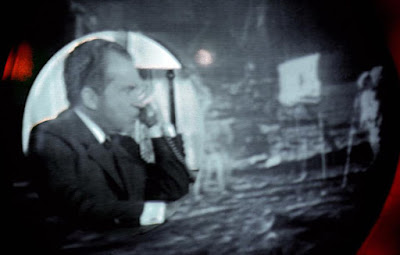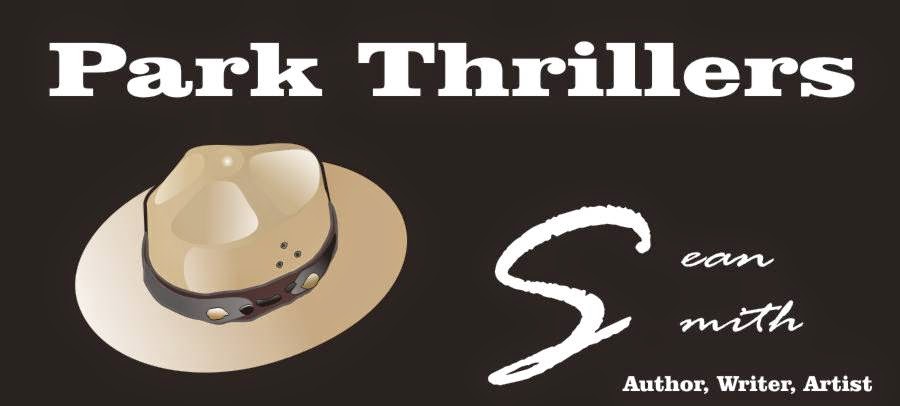This July marks the 154th anniversary of the Civil War battle at Gettysburg Pennsylvania. People today know this battle, as well as, the corresponding Union victory at Vicksburg Mississippi as the turning points of the war.
The actual Civil War fighting ended more than 15 decades ago but the country today appears to be once again on the verge of bloodshed. Tensions run high even today on the
cause,
issues, and
meaning of the war. Dust ups over Confederate symbols and monuments to their generals and leaders seem to occur every day. Check
here,
here, and
here for more.
In both my education and private life I've spent significant time studying the American Civil War. In the past few years alone, I've read the following books and listened to the following lectures.
This study has revealed a few things.
The Confederates' efforts were not a Lost Cause. After the war, a myth pushed by Confederate
Jubal Early grew up that the South fought the war for state's rights, a heroic effort to throw off federal tyranny, much like the American patriots threw off British tyranny. But this wasn't the case. The Confederate states left the Union because they saw threats including Lincoln's election to the institution of slavery. They stated clearly in their secession declarations their desire and purpose to maintain and even expand slavery's reach.
General Early also promoted the idea that due to the North's advantage in men and materials, the south didn't stand a chance. Modern Confederates play up this myth to elevate the Southern cause to noble proportions. But this too is false. The North didn't win the war simply because it had more men and material, which was true. However, anyone watching the war's progression over the first few years would not have seen these facts as producing advantage. It was the North's deployment of those men and material that eventually carried the day. Yet moreover, the North outmaneuvered the South in its incorporation of new technologies such as trains and the telegraph. The North also pushed medical advancements beyond those of the South, including the establishment of methods for ambulance care that are still in use today.
Meanwhile, the South throughout much of the war enjoyed advantages, that if properly exploited could have led to victory. For example, the South fought much of the war on southern soil. This meant Confederate enjoyed a better understanding of the terrain, support from a friendly populace, and far more secure supply lines. The North, meanwhile, faced the opposite conditions for most of the war. Moreover, the Confederate's victory conditions were far simpler than the Union's. The South was fighting for independence. Total victory over and subjugation of the North was not required to achieve that goal. Rather the South merely had to make the North tired of war in order to win. The North, on the other had, was fighting to maintain the Union, which meant they had to defeat the South entirely. This was a much more difficult task.
In addition, the South missed several opportunities to win the war outright. For example, the South's failure to push its advantage onto Washington D.C. after its victory at First Manassas was likely a turning point of the war. Had the South followed General Jackson's advice and marched onto Washington D.C. the war may well have ended soon after its first major battle.
In the end, the war's outcome was not foretold at its commencement. In fact, many Confederates at the time would likely laugh at the modern interpretation that the war was lost from the beginning.
Real people fought the civil war. According to Ken Burns 1990 documentary
The American Civil War, "The Civil War was fought in ten thousand places, from Valverde, New Mexico and Tullahoma, Tennessee, to St. Albans, Vermont and Fernandina on the Florida Coast." But it was also fought
by hundreds of thousands of combatants and endured by millions more, who were real people with real strengths and weaknesses. They fought and believed the war was fought for high-minded ideals like ending slavery or independence. But beneath these lofty goals, many more average, mundane, selfish, economic, political, and personal motivations pushed people to fight the war.
These people weren't superheroes. They were real people who struggled with their own ambitions, their own fears, their own limits. Many in Lincoln's cabinet thought him unworthy of the presidency, that they themselves could better run the war. General George McClellan thought Lincoln "nothing more than a well-meaning baboon" and often seconded guessed and disregarded his Commander-in-Chiefs orders.
Meanwhile, General Stonewall Jackson was a sub-par college professor, who became a brilliant military tactician. He was also a hypochondriac who often failed to share details of his war plans with this subordinates. This flaw may have been one that ultimately got him killed.
Lincoln himself was a man of varied traits, he saw his mission to save the Union clearly and did everything in his power including issuing the Emancipation Proclamation to achieve that goal. Lincoln skillfully guided the nation through the war, all while battling with the confederates, and even at times his generals, cabinet, and wife. Lincoln also dealt with and suffered from depression throughout much of his adult life, which on several occasions left him contemplating suicide.
Real people, not super humans, fought this war and saw it to its conclusion.
Many are still passionately engaged in the American Political Experiment. The public debate over the location, meaning, and removal of confederate monuments reveals that many believe in a political process for resolving public matters. While some take matters into their own hands through violence and intimidation, most communities push through these debates and resort to legal mechanisms to resolve the issues. While some may not support nor appreciate the outcome of the political process, the process has held in every instance.
We are the future people who are to heal the nation. In many instances, politicians kick difficult issues down the road for future generations to solve. At the Hanford Nuclear Reservation in Central Washington, the United States Government produced plutonium for the atomic bomb that was dropped on Nagasaki. Over the next four decades Hanford's reactors made enough nuclear material for 60,000 weapons. This production also produced millions of gallons of mixed and contaminated waste. More than 50 million gallons of this waste is stored in single shell tanks, some of which are leaking today. While the political and military leaders at the time took some efforts to provide for the long-term disposal of this waste, they punted on many of the more difficult issues believing future generations would be in a better position to solve the problem.
In some instances, political leaders since the Civil War have punted on the infinitely more difficult challenge of bringing the nation back together and healing its "original sin" of slavery. The nation over the 150 years since the war's completion has yet to adequately solve the challenge of integrating and granting justice to a previously enslaved people. And while those past leaders may not have consciously or overtly stated they were gifting these problems to us, here we are. We today are the future citizens granted the sacred duty of healing the civil war's still raw wounds and ramifications.
Can we do it?
Yes.
Will we do it?
###########
Sean Smith is an award winning conservationist and author. He is a former National Park Ranger at Yellowstone, a
TEDx speaker, and private pilot. He graduated from the University of Washington in 1989 with a degree in Political Science. He got his master's in Natural Resources Management from Central Washington University in 1996. He currently runs Washington State's efforts to reduce and eliminate toxic chemicals from consumer products and serves as the Mayor Pro Tem of Covington.
He has been writing stories and books since he was a child and currently writes national park thrillers from the shadow of Mount Rainier.
 Forty eight years ago, my family sat in rapt awe as humanity first set foot on another heavenly body.
Forty eight years ago, my family sat in rapt awe as humanity first set foot on another heavenly body.
